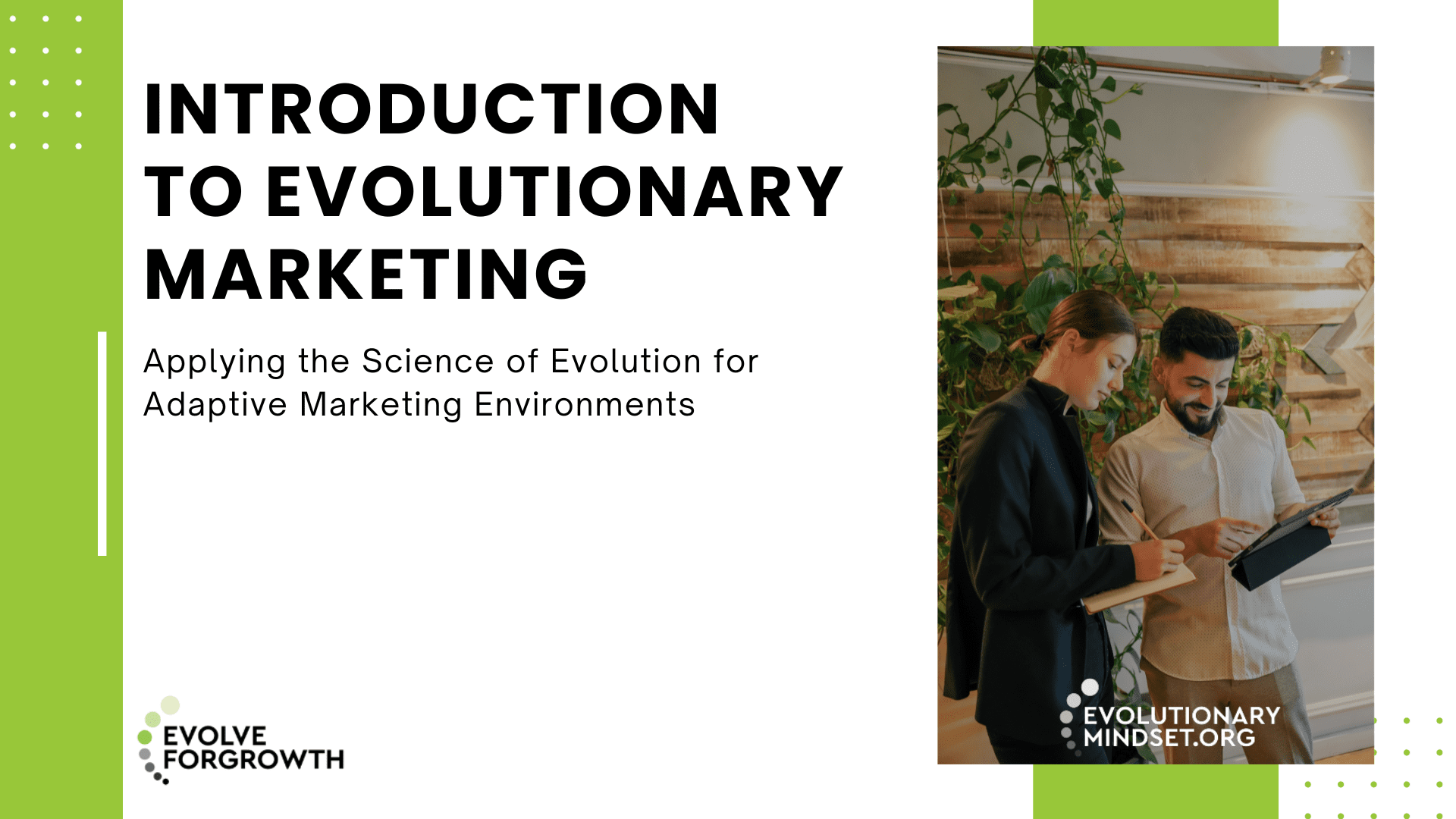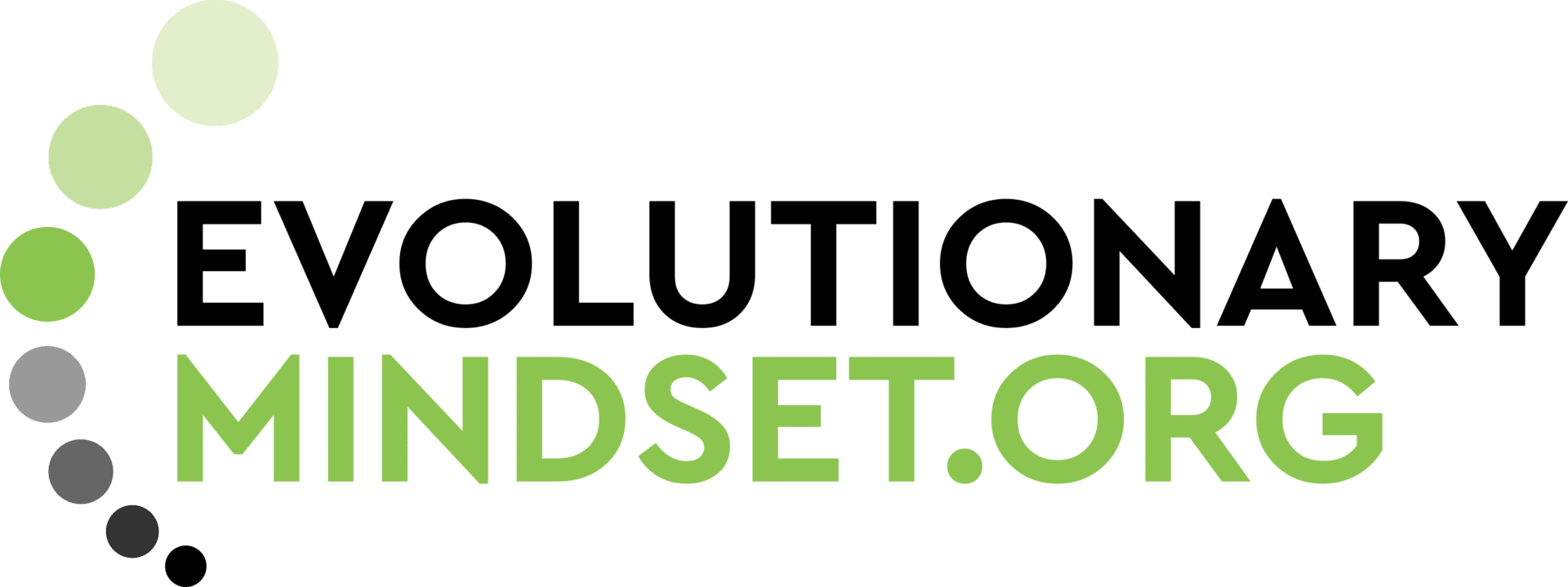
Introduction to Evolutionary Marketing for Accelerated Growth
Applying the Science of Evolution for Adaptive Marketing Environments
In today’s fast-paced business world, the marketing landscape resembles a dynamic ecosystem. B2B startups continually navigate a maze of evolving technologies, shifting consumer behaviors, and global events. Gone are the days when traditional marketing methods were sufficient. To thrive, businesses must adopt innovative approaches that align with this ever-changing environment. Enter Evolutionary Marketing.
Understanding The Science of Evolution
At its core, evolution is about adaptation, survival, and growth. Drawing parallels from biology, where species evolve to adapt to their surroundings, businesses must evolve their marketing strategies to stay relevant. This isn’t merely about survival but flourishing in competitive landscapes.
What is Evolutionary Marketing?
Evolutionary Marketing is more than just a buzzword; it’s a strategic approach that borrows from biological evolution principles. This methodology prioritizes continuous experimentation, adaptation, and optimization. Recognizing the fluidity of customer preferences, technological advancements, and market shifts, it emphasizes sustainable growth over fleeting successes.
Adaptive Business Environments
Today’s business world is characterized by its dynamic nature. Advancements in technology, changing consumer expectations, and global events make it imperative for businesses, especially startups, to be agile. Those that can swiftly pivot, innovate, and respond to these changes position themselves for long-term success.
In marketing especially, the pace of change is extreme and it requires staying up on your customer beliefs, needs, wants and preferences in real-time and utilizing the latest technology and marketing approaches to be successful.
Unified Field in Evolutionary Marketing
Central to Evolutionary Marketing is the concept of the unified field. This holistic perspective views a business as a network of interconnected relationships, including customers, partners, employees, and stakeholders. By nurturing these relationships, businesses create an ecosystem conducive to growth, collaboration, and innovation.
Let me also explain that the evolutionary approach can be applied to every living entity, individual, group, or organization since every living entity is an adaptive system. The same rules and universal principles apply. Every living entity, being adaptive, is in constant flux between growth and contraction, as individual systems and in relation to other living entities.
The functionalist principle, used by evolutionary marketers, describes the three elements or functions shared by all entities which include: 1) a purpose with a vision of a believed future scenario, 2) the growth function or action principle including the value added, what each entity brings to the organization, and 3) the energy conservation function including the shared values or ways of operating to ensure survival.
These three elements of a living entity define its unified field and drive how the entity operates within the environment, within shared societies or cultures, groups, or partnerships.
Building Value-Add
Adding value to relationships is paramount. Just as symbiotic relationships thrive in nature, businesses flourish when they prioritize mutual benefits. By understanding and catering to the evolving needs of stakeholders, businesses can foster trust, loyalty, and sustainable growth.
Relationship Complementation
Drawing inspiration from biological evolution, where species build complementation based on similar attributes, interests, values and ways of operating and to compliment each other’s strengths and weaknesses, individuals and businesses look to do the same.
To build complementation with others one must build trust and credibility and being authentic is the best way as it strengthens respect and forms deeper connections. Whether you’re the leader of a team, leader of a company, or leader of a country, building trusting connections with people is the most important factor in building complementation for long-term success.
Aligning Around A Shared Vision
A shared vision acts as a compass, guiding businesses towards common goals. By aligning all stakeholders; customers, partners, employees, leadership team, with a unified vision, businesses can drive coordinated efforts, collaboration, and innovation – therefore more growth.
Benefits of Evolutionary Marketing
The benefits of adopting an evolutionary approach to your marketing are numerous and in time it will be imperative. Advantages include:
• Improved Adaptability: Respond swiftly to market changes and consumer preferences.
• Enhanced ROI: Continuously optimize strategies for better returns.
• Customer-Centricity: Prioritize customer needs, foster stronger relationships.
• Long-Term Sustainability: Focus on sustainable growth, ensuring longevity.
In applying an evolutionary marketing approach, businesses must navigate complexities, manage resources effectively, and ensure alignment across stakeholders.
Evolutionary Marketing offers a transformative approach for B2B startups. By embracing adaptability, fostering relationships, and prioritizing value-add, businesses can navigate today’s dynamic landscape, ensuring sustainable growth and success.
In conclusion, evolutionary marketing isn’t merely a strategy; it’s a mindset shift. By embracing adaptability, fostering relationships, and prioritizing sustainability, businesses can navigate today’s complex landscape, ensuring growth, innovation, and success.
Want to learn more about an evolutionary approach or think you might like a fractional CMO or marketing leader to help guide you to success? Join the “Evolutionary Marketing for Early-Stage B2B Companies” program at: EvolveForGrowth/Evolutionary-Marketing-B2B
